Research Highlights
Research Highlights

Toward a new CCP for Arts, Humanities, and Culture research (CCP-AHC)
Eamonn Bell
CCP-AHC is a scoping and research software community-building exercise, funded by UKRI and STFC for 24 months from January 2025, with project leadership at Durham and with co-investigators at University of Brighton and STFC. Its goal is to support the sustainable and efficient development of software, pipelines, and workflows used by arts, humanities, and culture researchers who make use of UK-based digital research infrastructure (DRI). It will do so by disseminating and implementing the Collaborative Computational Project (CCP) model that has been successfully been used by many other scientific software communities over the past several decades. There is a special emphasis on ensuring that research software developed by this community makes the best of use of DRI supported by public funding, including existing and future high-performance computing (HPC) and advanced computing infrastructures supported by UKRI, UK-based HEIs and other research organisations eligible for UKRI funding.
Image: Cristóbal Ascencio & Archival Images of AI + AIxDESIGN https://betterimagesofai.org https://creativecommons.org/licenses/by/4.0/

EPSRC IAA: weDecide: Clinical Tool for Shared Decision-Making for Treatment of Menopause Symptoms
Nelly Bencomo, Dorothy Monekoso, Huma Samin
10 per cent of women leave the workforce due to menopause, while one in four considers leaving. The weDecide project aims to evaluate a novel technique to support personalised and shared decision-making (PSDM) for menopause treatment that considers not just the criteria of a menopause expert but also that of the woman experiencing the peri-menopausal symptoms. The technique builds on the decision-making AI-based tool developed in the EPSRC project Twenty20Insight, which considers the priorities/preferences of humans. weDecide focuses on assessing the clinical relevance and acceptability of the decisions prompted by the weDecide Tool, and will inform an EPSRC bid.
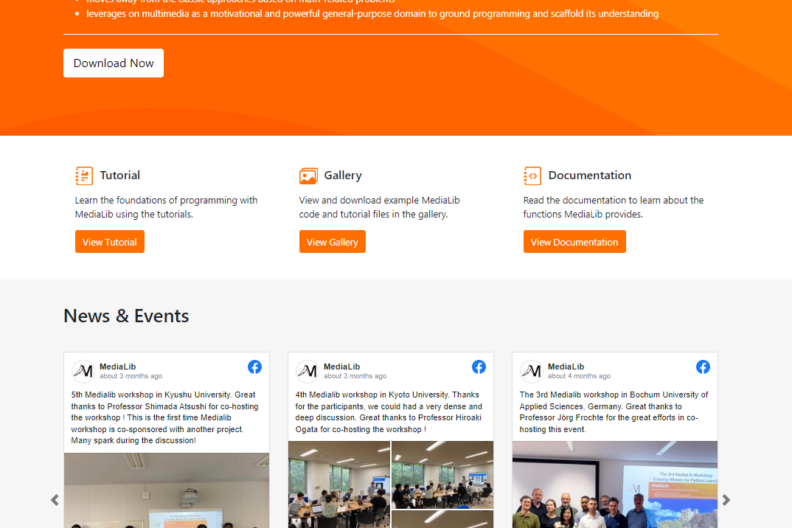
Medialib – The first cut-down Python library that simplifies multimedia programming
Jingyun Wang
Programming skills are one of the paramount STEM skills for the current generations. However, supporting higher education teachers to implement programming in their class with non-technical beginners, is one of the most challenging issues. Most of the novice university students struggled with traditional Python exercises that require maths content as a prerequisite because the abstract logic behind maths solutions challenges the summarization of decomposition and its application to other problems. Adding programming logic on top of complicated maths logic exacerbates the challenges for non-technical learners who already struggle with maths. To address this issue, we proposed a new beginner-friendly multimedia Python library named Medialib designed to simplify multimedia programming. The library and its teaching materials is intended to enable programming education to move the focus from maths-related problems to multimedia programming. We aim to create interactive and engaging experiences by incorporating elements from other fields including game implementation to help learners develop a more versatile skill set.
Following the official launch of the MediaLib website on October 31st, 2022, until September 2023, over 5116 unique users from 66 countries have visited the website. The majority of users come from diverse regions including the UK, Japan, China, USA, and Germany, showcasing its broad international appeal. Pages were viewed a total of 15,161 times. We have organized 8 internationally workshops in 5 countries (UK, Denmark, Germany, Japan and China) involving 149 participants.

Empathetic interactions in human-machine communication
Shauna Concannon
Conversational AI systems (e.g. Virtual Personal Assistants, chatbots such as Replika and ChatGPT) are increasingly utilised in more socially complex contexts. Developing systems that can respond appropriately to emotional content and employ empathetic language more convincingly is an active research area. Assessing the way systems create perceptions of empathy brings together a range of technological, psychological, and ethical considerations that merit greater scrutiny. The ability to create the perception of empathy human-machine communication is achieved in large part through linguistic behaviour and yet existing approaches to evaluation play little attention to how language is used. In this project we examine the strategies used by conversational AI systems to create the perception of empathy using approaches from interactional linguistics and develop a framework for measuring perceived empathy in the context of human-machine communication.
Photo by Andy Kelly on Unsplash.
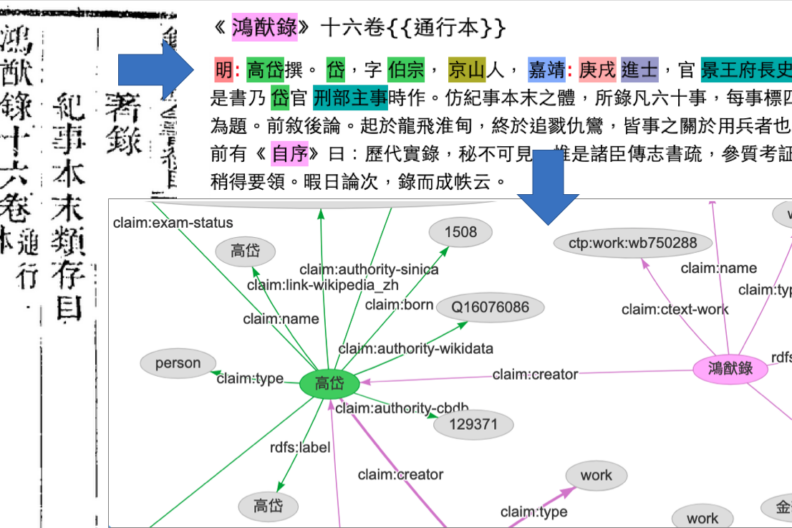
Premodern China in the digital age
Donald Sturgeon
Building on experience and data produced while creating the Chinese Text Project digital library (Wikipedia), my current work continues to focus on applying digital technologies to aid in our understanding of the language and history of premodern China. Recently this has included applying crowdsourcing to the task of creating Linked Open Data to record structured, precise, and explicitly sourced data on historical people, events, bureaucratic structures, literature, geography and astronomical observations evidenced in early Chinese texts. Ongoing work involves creating Natural Language Processing models sufficiently accurate to greatly augment the accessibility of premodern texts to modern readers, and evaluating the effects of different types of computer-mediated reading assistance offered to readers of historical literature.

AGENCY: Assuring Citizen Agency in a World with Complex Online Harms
Stamos Katsigiannis
The online world is for many people a curious but uncertain one. It enriches many facets of life but at the same time exposes citizens to a variety of threats that may cause harm to them, their loved ones and wider society. There is growing evidence that many such harms result from a complex interaction of societal processes driven by diverse stakeholders. These complex harms tend to happen to citizens, and, in most cases, they are not purposely caused or easily controlled by citizens. The AGENCY project is motivated by the firm belief that establishing citizen agency is a sine qua non for any transformative approaches that reduce these complex harms. That is, citizens need to be empowered through technologies and user-centred tools that enable them to gain a sense of control, ownership, security, and consequently trust and assurance in their online activities.
Engaging with the general UK population and identifying demographic markers that intersect with complex harm, AGENCY aims to establish interdisciplinary co-design principles, technology foundations and collaborative governance procedures to assure online citizen agency in the presence of multiple stakeholder interests. If AGENCY succeeds, it will provide a profound understanding of the role of agency in reducing complex online harm and will deliver collaborative methods, technological building blocks and scientifically grounded best practices for our society to provide more proactive and structured approaches to protecting citizens online.

Opening the Red Book
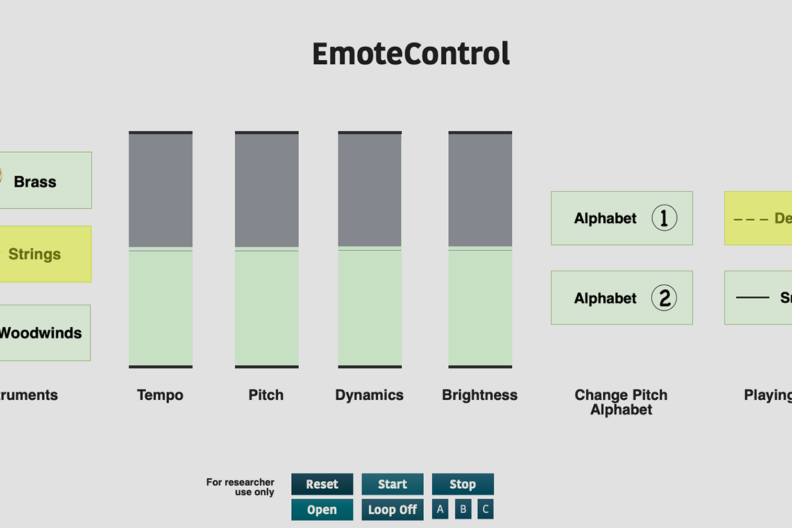
A Recipe for Perceived Emotions in Music
Annaliese Micallef Grimaud
Have you ever listened to an unfamiliar piece of music and perceived it as sounding sad or happy? The answer is probably yes.
A common follow-up question is: How does this work?
One of my research projects involved looking at how different musical features such as tempo and loudness are used to embed different emotions in a musical piece. This was attained by letting music listeners themselves show me how they think different emotions should sound like in music, by asking them to change instrumental tonal music in real-time via a combination of six or seven musical features using a computer interface I created called EmoteControl. This work identified how different combinations of tempo, pitch, dynamics, brightness, articulation, mode, and later, instrumentation, helped convey different emotional expressions through the music.
Find out how 6 musical features were used to convey 7 emotions (anger, sadness, fear, joy, surprise, calmness, and power) and whether they were successful or not here: https://journals.sagepub.com/doi/10.1177/20592043211061745
Find out how the same 6 musical features plus the option to change the instrument playing were used to convey the same 7 emotions here: https://journals.plos.org/plosone/article?id=10.1371/journal.pone.0279605
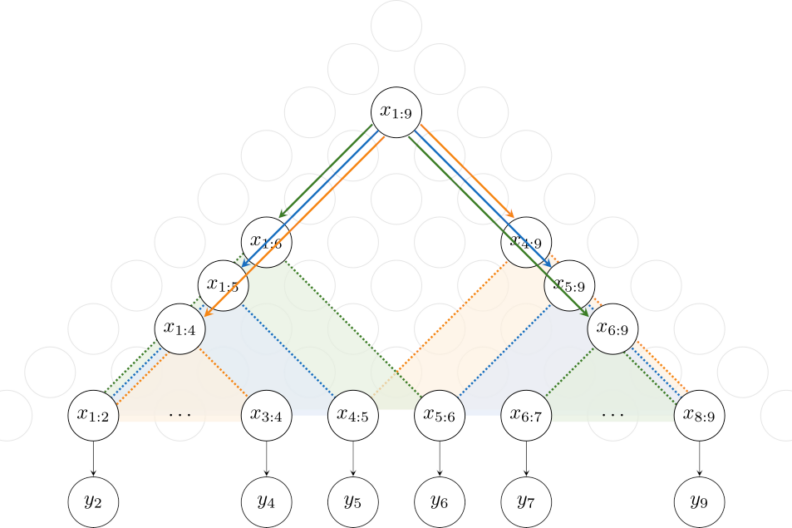

KTP with Morelife
Sunčica Hadžidedić
Knowledge transfer partnership between University of Durham and Morelife (UK) Ltd is funded by Innovate UK. The grant was approved in 2022, and the project started in July 2023. The project aims at using state-of-the-art digital technologies for personalizing weight management interventions. It will run for three years and hire two research associates.
Project Team
-
Project Lead: Dr Suncica Hadzidedic
-
Knowledge Base Supervisor: Dr Jingyun Wang
-
Research Associate: Mr Victor Adayemo
-
Business Partner: Morelife (UK) Ltd
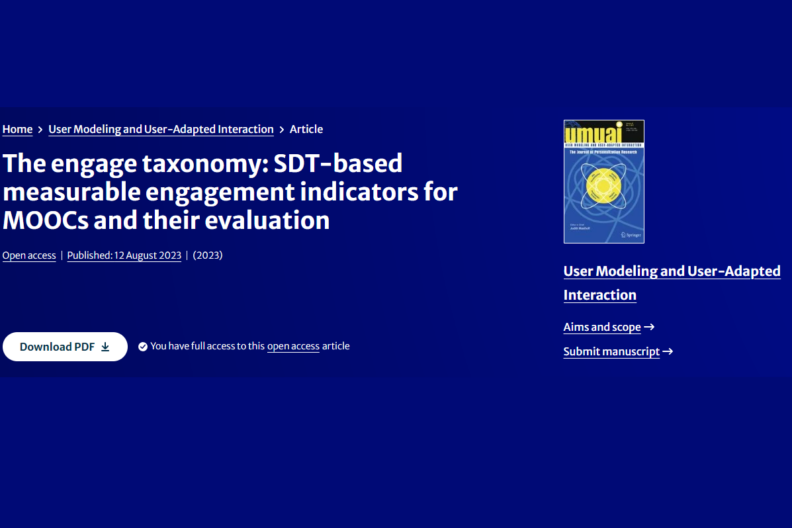
The engage taxonomy: SDT-based measurable engagement indicators for MOOCs and their evaluation
Alexandra I. Cristea
This paper shows for the first time how Self-Determination Theory (SDT) can be mapped onto concrete features extracted from tracking student behaviour on MOOCs. The paper further contributes by building the Engage Taxonomy, the first taxonomy of MOOC engagement tracking parameters, mapped over 4 engagement theories: SDT, Drive, ET, Process of Engagement. Importantly, the paper also serves as the first large-scale evaluation of the SDT theory itself, providing a blueprint for large-scale theory evaluation. It also provides for the first-time metrics for measurable engagement in MOOCs, including specific measures for Autonomy, Relatedness and Competence.

Conversational Agents for Older Adults (CA4OA)
Effie Lai-Chong Law
Trustworthy conversational agents (CAs) can help older adults (OAs) as a flexible means to access basic services such as online banking where the shift to CAs is fast. However, OAs tend not to adopt CAs due to the lack of trust and cannot benefit from them. Consequently, OAs may become digitally marginalised and excluded from digitalised society. It is timely to study with interdisciplinary approaches how design choices of CAs (modality, embodiment, anthropomorphism) and OAs’ mental models, attributes (e.g., gender) and conditions (e.g., loneliness) are related to trust in CAs. Design guidelines and prototypes for OA-specific CAs will be delivered. CA4OA is a research project funded by UKRI Trustworthy Autonomous Systems (TAS) Hub.

Firing up the Epistemological Engine – Durham University
We propose to explore one component of the DEE, by developing methods to automate the processes involved in a literature review – in particular to support meta-analysis by using computer science (CS) tools such as natural language processing, deep learning and AI. We will use workshops to bring together expertise in CS and social science (SS) and will establish a network of interested researchers. See more at: Firing up the Epistemological Engine – Durham University
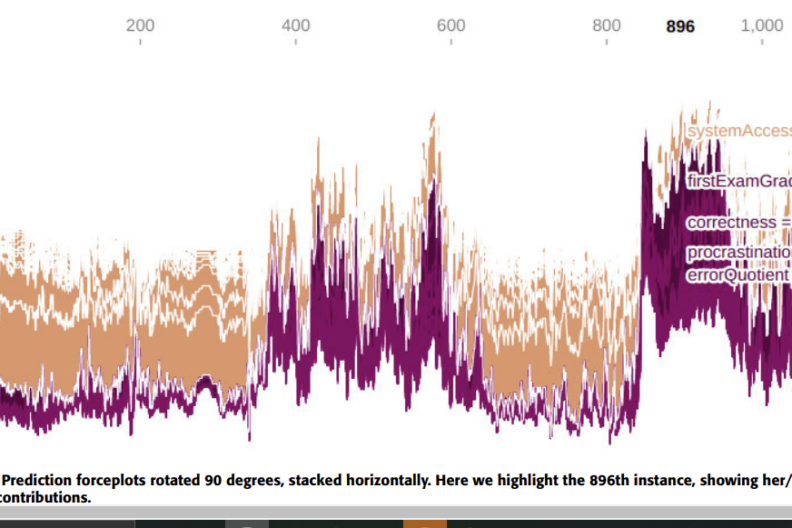
Durham@ATI
We’re proud to announce that we have been named among the first-ever successful applicants to The Alan Turing Institute’s Network Development Awards, in recognition of our proven research excellence, led by Professor Alexandra I. Cristea from the Department of Computer Science, with co-I Professor Brian Castellani, Director of the Durham Research Methods Centre, Durham@ATI.
Durham@ATI (2022) will enable us to significantly build on our expertise in Data Science, AI, and benefit from active involvement with the Alan Turing Institute (ATI).
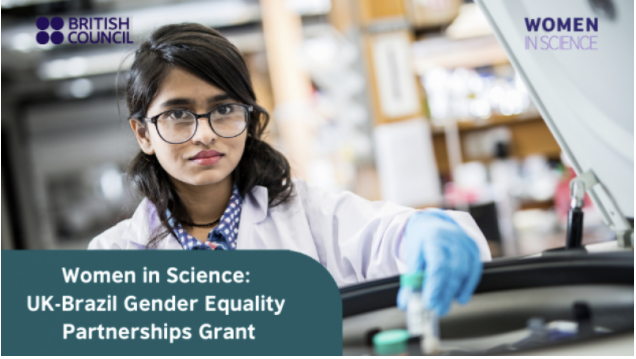
Messenger: Women in STEM and Cultural Diversity
Empowering women in science through mentoring and exchanging experiences (2021-22) (UK-Brazil Gender Equality Partnership funded by the British Council) (2021-22) led by Professor Alexandra I. Cristea.
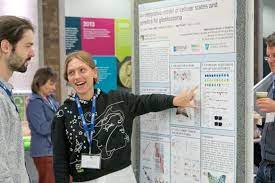
JANET
Weizman Institute funded JANET (Joint Lab in Learning Analytics for Personalised Science Teaching) project (2018-2023), led by Professor Alexandra I. Cristea

EPSRC Twenty20Insight
EPSRC funded Research Project (2021-2024), led by Dr Nelly Bencomo
Twenty20Insight website – EPSRC web link
As digital technology permeates every area of modern life, we risk becoming over-dependent on complex systems that operate in an opaque way, creating a risk that they exhibit emergent properties that adversely affect their users or their wider environment. This is particularly true as developers increasingly rely on AI or ML techniques as a means to define system behaviour when the problem space is too complex or poorly understood for human developers to explicitly specify that behaviour. We are tackling incompletely understood problems by developing systems whose behaviour and wider impact are by necessity also incompletely understood. This trend, which is largely enabled by an abundance of data harvested from (e.g.) mobile devices, sensors and social media, is radically changing how systems are developed and how they are used. We need a new approach to software engineering that:
- places greater emphasis on making explicit the risks of unintended behaviour for innovative new software products either through limitations on our understanding of the envisioned product’s behaviour or through misuse, and
- actively supports explainability of the exposed behaviour by the running system.
Twenty20Insight is an interdisciplinary project bringing together academic experts in Software Engineering (SE), RE, Design Thinking and ML to help system stakeholders and developers understand and reason about the impact of intelligent systems on the world in which they operate.
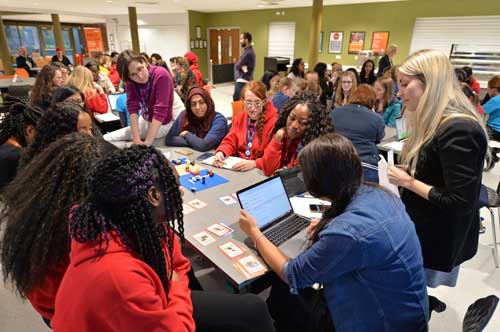
FAST TRACK Skills Bootcamp in Data – TechUPWomen
Our Fast Track Skills Bootcamp (2021-22) in Data is a free 12 week fully online training programme developed in collaboration with industry to equip you with the skills you need to apply for an entry level role, apprenticeship or internship or apply data engineering skills to your own business, led by Professor Sue Black and Professor Alexandra I. Cristea.
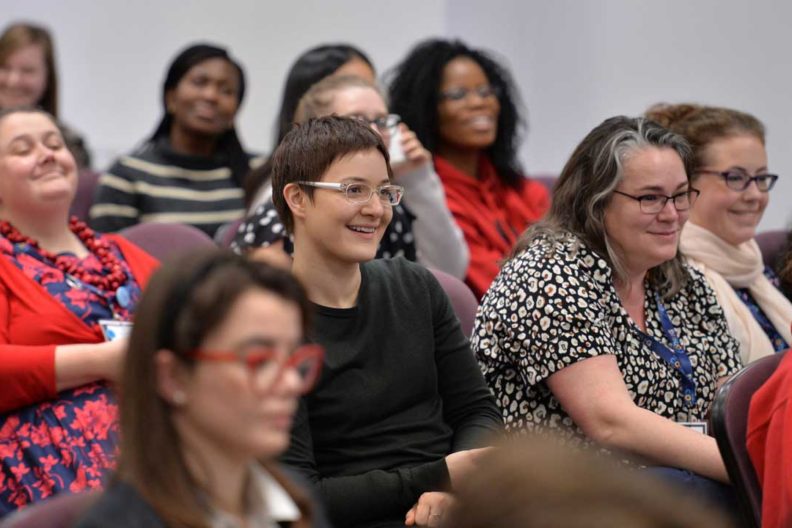
Skills Bootcamp in Software Development
Our Skills Bootcamp (2021-22) in software development is a free 14 week online training programme developed in collaboration with industry to equip you with the skills you need to apply for an entry level role, apprenticeship or internship,, led by Professor Sue Black and Professor Alexandra I. Cristea.

Skills Bootcamp in Data – TechUPWomen
Our Skills Bootcamp (2021-22) in data is a free 14 week online training programme developed in collaboration with industry to equip you with the skills you need to apply for an entry level role, apprenticeship or internship, led by Professor Sue Black and Professor Alexandra I. Cristea.
